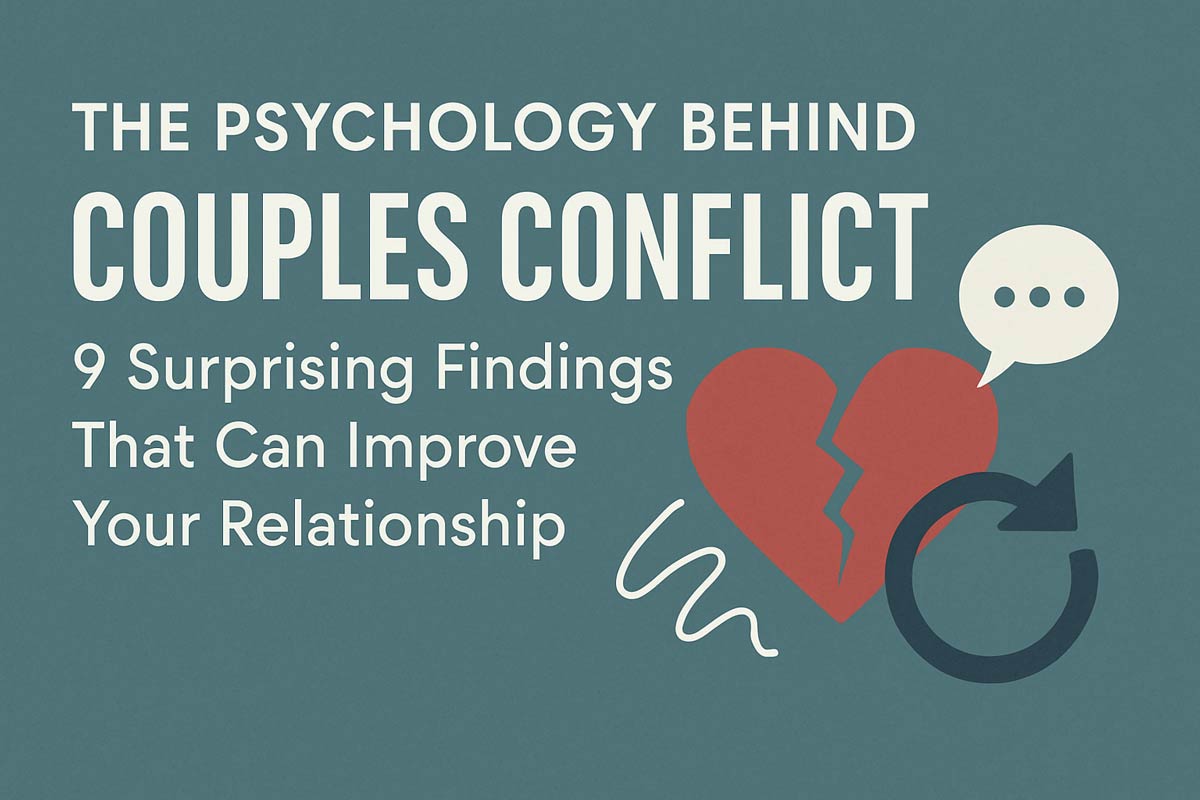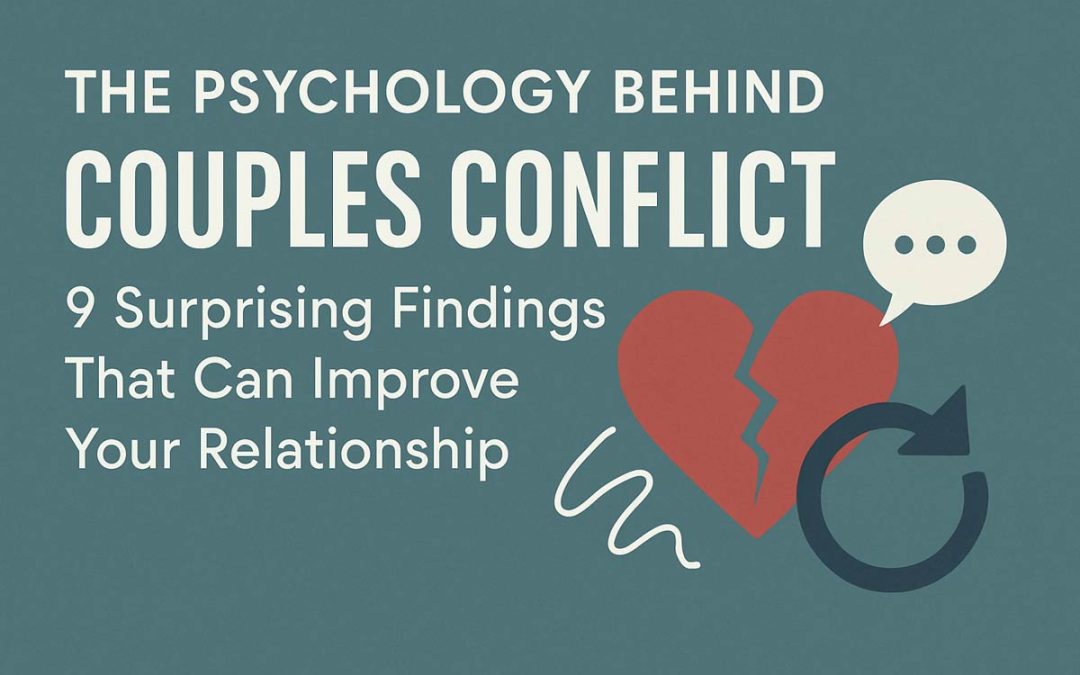The Psychology Behind Couples Conflict: 9 Surprising Findings That Can Improve Your Relationship
By Dr. Stefanie Mazer, Psy.D., PsyPact, Licensed Psychologist

Conflict in relationships is not a sign of failure—it’s a sign of humanity. Even the happiest couples argue. The difference between couples who thrive and those who struggle often lies in how they understand and navigate their disagreements.
In this blog post, we’ll explore nine surprising psychological findings that shed light on the root causes of couples conflict and offer practical ways to transform tension into connection.
Why it matters: Open, respectful disagreement allows couples to air differences, clarify needs, and understand each other better.
Tip: Focus on how you argue, not whether you argue. Use “I” statements, stay present, and aim to listen as much as you speak.
Why it matters: An anxious partner might become clingy, while an avoidant partner might shut down. These patterns can create cycles of miscommunication.
Tip: Learn about your own attachment style and your partner’s. Greater self-awareness leads to more compassionate reactions during conflict.
Finding: We tend to interpret our partner’s actions through mental filters—like assuming the worst or exaggerating problems.
Why it matters: Statements like “You never listen!” or “You always forget!” are examples of distorted thinking that escalate conflict.
Tip: Replace all-or-nothing thinking with nuance. Try: “Sometimes I feel like I’m not heard. Can we talk about that?”
Finding: The ability to self-soothe in heated moments determines how conflict unfolds—and whether it gets resolved.
Why it matters: When emotions hijack logic, we may say or do things we regret. Regulated emotions allow for productive dialogue.
Tip: If you feel overwhelmed, pause the conversation. Take 20 minutes, practice deep breathing, then return when calm.
Finding: People high in conscientiousness may focus on fairness, while those with neurodivergent traits may struggle with emotional nuance.
Why it matters: Understanding your temperament and your partner’s helps prevent misunderstandings.
Tip: Discuss how you each process conflict. For example, does one of you need space to think, while the other craves quick resolution?
Finding: Social conditioning teaches many men to suppress emotion and many women to over-express, leading to mismatched communication.
Why it matters: These differences can cause frustration and misunderstanding unless openly discussed.
Tip: Break free from roles. Practice emotional fluency as a shared skill, not a gendered expectation.
Finding: Criticism, contempt, defensiveness, and stonewalling are distressing patterns strongly correlated with relationship breakdown.
Why it matters: Recognizing and interrupting these behaviors can dramatically improve how couples manage conflict.
Tip: Replace criticism with a gentle start-up, contempt with appreciation, defensiveness with responsibility, and stonewalling with self-soothing.
Finding: Work stress, financial strain, or family issues can increase irritability and reactivity in relationships.
Why it matters: Couples may misattribute stress to relationship flaws instead of recognizing external pressures.
Tip: Check in regularly. Ask each other: “What’s been weighing on you lately?” Build emotional support into your weekly routine.
Finding: All couples mess up. What matters most is how quickly and sincerely they reconnect after conflict.
Why it matters: A strong repair process builds trust, resilience, and deeper emotional intimacy.
Tip: Don’t wait for things to blow over. Offer a genuine apology, acknowledge feelings, and reaffirm your commitment.
📞 Call us: (561) 414-2144
🖥️ Book Online: Free 15-minute Consultation
📩 Email us: stefanie@drstefaniemazer.com
drstefaniemazer.com • Mindwise, Inc.
Disclaimer This blog post is for informational and educational purposes only and is not intended to substitute for professional psychological, psychiatric, or medical advice, diagnosis, or treatment. Reading this post does not establish a therapeutic relationship with Dr. Stefanie Mazer, Psy.D., or imply professional guidance. If you are experiencing emotional distress, relationship difficulties, or a mental health crisis, please seek help from a licensed professional in your area or contact emergency services.
for your free consultation.

